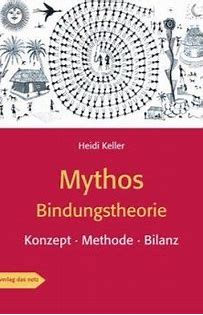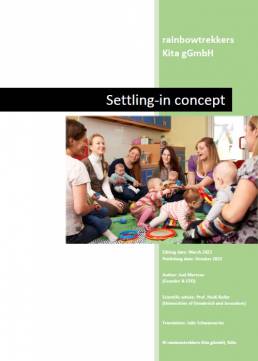Settling-in
Peer group orientated and family based
With our new settling-in concept, we are ending a long era in which settling into our kindergartens went along with the “Berlin Model”. This is because the assumptions from attachment theory on which the Berlin Model is based have proven in professional practice to be a stress factor for parents and staff and, as a consequence, for children as well.
We are not the only daycare provider who has become aware of the limitations of the “Berlin Model” in everyday life. Many other daycare centers have also set out to rethink settling-in and to incorporate the “peer” approach which stresses the importance of the group experience and of role the other children in kindergarten play in a successful settling-in progress. In doing so, they orient themselves on the so-called “Munich Model”.
However, our settling-in concept goes even further than the “peer” approach of the Munich Model. We also place great emphasis on the active involvement of parents during and before the actual settling in period. We explicitly include the anthropological experiences of KELLER (“It takes a village to raise a child”).
But in view of the socio-cultural characteristics of our target group, with whom we have been working for a decade and a half, it is equally our desire to make the parents themselves part of the “village community” that we form. In this sense, it is our ambition to settle-in the parents together with the children.
Of course, our inclusive approach applies to the settling in process as well: From our point of view, there is no one size fits all, but each child should be considered individually. We do think that our model makes the transition process smoother for children, parents and educators than established models.
Video and Audio with Heidi Keller, author of the book “Mythos Bindungstheorie”
Individualized support is at the heart of modern early childhood education – and today this is based primarily on attachment theory. Can one theory be best for all?
Just as children are different, so is their way of relating. Under the challenges of a multicultural society, this diversity simply cannot be mastered with one doctrine. Common sense alone suggests that attachment theory as a single method cannot be good for everyone – just as one size does not fit all. What is the significance of attachment theory today? There has been movement in attachment theory, both in academia and in practice. The signs are pointing to rethinking and reorientation. In science, cultural psychological and anthropological findings that characterize the richness of children’s living and learning environments are finally being taken note of, and in practice, this new quality that has become everyday life in the daycare center is creating facts that are being noticed.
Heidi Keller wants to confront with this book, when it comes to the self-evidence with which the attachment theory is received, and to show the partly unacceptable consequences that result from a blind adoption of the theory in practice. In doing so, she wants to stimulate a discourse from a scientific, professional-political and ethical perspective in order to relieve the highly committed professional practice from the efforts resulting from an uncritical reception of the attachment theory and to support it in its commitment to good child day care.

Prof. Dr. Heidi Keller is head of the Department of Developmental Psychology at the University of Osnabrück. Her work focuses on infant research and early mother-child relationships.
Members of:





